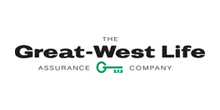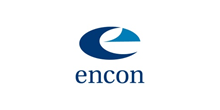About Engineers Canada
Engineers Canada is the national organization of the 12 provincial and territorial engineering regulators who license the country’s more than 280,000 professional engineers. We serve these regulators by delivering national programs to ensure the highest standards of engineering education, professional qualifications and professional practice.
We are the voice of our members in national and international affairs and promote greater understanding of the nature, role and contribution of engineering to society.
President’s Message
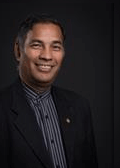 It has been an honour to serve as President of Engineers Canada in 2015. This past year has been one for strategic renewal, strengthening foundations, redefining linkages, reinforcing collaboration among our regulators and celebrating accomplishments.
It has been an honour to serve as President of Engineers Canada in 2015. This past year has been one for strategic renewal, strengthening foundations, redefining linkages, reinforcing collaboration among our regulators and celebrating accomplishments.
We marked two anniversaries this year that are a testament to the great work Engineers Canada has done, and continues to do, in ensuring a world-class standard of engineering education and continuing professional development. Our Accreditation Board celebrated its 50th Anniversary in 2015, marking the occasion with celebrations in Toronto, Ottawa and Halifax where we thanked the volunteers, staff, faculty, students and other stakeholders whose hard work over the past half century have made the Board a success. It is their commitment to the highest level of quality and professionalism that demonstrate that accreditation is a valued part of an engineering education.
The Public Infrastructure Engineering Vulnerability Committee (PIEVC) marked its 10th Anniversary in 2015. Over the past decade, the PIEVC Protocol has encountered great success and has made Engineers Canada a world leader in infrastructure vulnerability assessment. Since it was first used in 2007, the Protocol has been applied more than 45 times in Canada and abroad, and more than 750 engineers and professionals have now been trained in its application. A testimony to its success, 2015 saw the first time the application of our PIEVC Protocol was included in the criteria of a government Request for Proposal for the design and building of infrastructure.
2015 also saw Engineers Canada initiate key projects and achieve important milestones. In January, in partnership with Engineers Without Borders – Canada, we convened the first workshop of the Engineering Change Lab, a platform for collaboration to help the engineering profession reach its full potential. We’ve met our target of securing five Champion organizations to contribute to and support the Change Lab.
Engineers Canada also launched 30 by 30 in 2015, our commitment to raising the percentage of newly licensed engineers who are women to 30 per cent by the year 2030. This is key to ensuring that the engineering profession is sustainable and is reflective of Canadian demographics. We were happy to receive national support for 30 by 30 from the provincial and territorial regulators.
We’ve also continued to make good progress over the past year with our regulatory framework, standards and practices. The Framework for Regulation drafted 21 new elements and revised 16 others, while the Qualifications Board completed two new Model Guides and published the Good Character Guideline, in addition to hosting several national meetings for collaboration and professional development.
All told, 2015 was an exciting year for Engineers Canada, and it was a pleasure to serve as President during this time. I look forward to the continued progress of these and many other projects and initiatives that Engineers Canada will undertake in the coming year to promote and enhance the engineering profession in the service of society.
Digvir Jayas, FEC, P.Eng.
President
End 1: Regulatory excellence
Engineers Canada is to ensure that a current framework, standards, practices and systems, and a means to effectively transfer knowledge to facilitate regulatory excellence are available to the provincial and territorial engineering regulators.
Framework for Regulation
The Framework for Regulation is a set of aspiration elements that exists to support the engineering regulators fulfill their mandate of registration of members, administration and governance, discipline and enforcement, and regulation of the profession. In 2015, Engineers Canada finalized and prioritized the list of current and proposed elements in the Framework, including the revision of 16 existing elements and the drafting of 21 new elements. An analysis of Framework elements and Qualifications Board documents was also completed to ensure alignment between the two.
Qualifications Board
In 2015, the Qualifications Board successfully completed the Principles of Climate Change Adaptation for engineers, and completed and published the Good Character Guideline, for use by the regulators, and organized several national meetings on continuing professional development, engineer-in-training, environmental and professional practice issues.
Accreditation Board and substantial equivalency
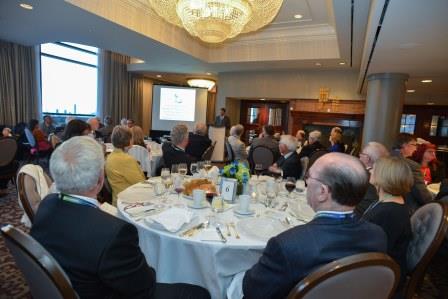
The Accreditation Board celebrated its 50th anniversary in 2015, marking the occasion with a September event in Toronto, and two other celebrations in Ottawa and Halifax in November to thank all those who have played a role in the Accreditation Board’s success over the past 50 years.
In 2015, the Accreditation Board completed on-site peer reviews of 56 programs at 13 academic institutions to determine that those engineering programs meet or exceed the educational standards acceptable for professional engineering registration. This enhances consistency in regulatory standards and practices and supports mobility within Canada and international jurisdictions.
The Board also simplified the documentation that programs receiving Board visits must complete and delivered workshops to train visiting team members on outcome assessments in order to reduce the workload on programs requesting accreditation and on Board volunteers.
Engineers Canada was the lead nominator of the Colegio Federado de Ingenieros y de Arquitectos de Costa Rica (CFIA), which was admitted to the Washington Accord as a provisional member in 2015. CFIA follow the criteria and procedures of the Accreditation Board and will continue to strengthen their accreditation system and seek signatory status in 2017 or 2019.
Discipline and enforcement
At the annual meeting of the National Discipline and Enforcement Group in June 2015, representatives from each engineering regulator shared updates, discussed issues about interpreting legislation and enforcing case outcomes, and reviewed cases and legal challenges that regulators had faced in the past year. The Group also identified priority areas for further study, including continuing professional development, member categories, reducing confusion around processes for authenticating documents, and increasing awareness and visibility of the regulators’ roles.
End 2: Confidence in the profession
Stakeholders have evidence that engineers meet high standards, practise with competence and integrity, and that their work and self-regulation benefit society.
National Position Statements
The Public Affairs Advisory Committee reviewed and updates all Engineers Canada National Position Statements, including a complete revision of the statement on climate change. Four new statements were written and adopted by the Board on diversity, expert testimony requirements, federally regulated industries and qualifications-based selection.
Engaging government
In March 2015, Engineers Canada was invited to present to the House of Commons Standing Committee on Citizenship and Immigration. Chief Executive Officer Kim Allen, MBA, FCAE, FEC, P.Eng., spoke to the Committee about international engineering graduates and the importance of ensuring that newcomers to Canada are provided the best information and guidance to navigate the Canadian job market and become licensed engineers.
In the lead-up to the federal election in October 2015, Engineers Canada created a new election website to track the professional engineers running for a seat in Parliament, and to track each party’s platforms as they related to the engineering profession. We were highly encouraged by the Liberal Party’s use of Engineers Canada’s wording on climate change and resilience in their policy platform.
Once the election was completed, volunteers from the Bridging Government and Engineers Committee quickly began to reach out and meet with the returning and newly elected parliamentarians.
Public Infrastructure Engineering Vulnerability Committee
Engineers Canada celebrated the 10th anniversary of the Public Infrastructure Engineering Vulnerability Committee (PIEVC) and its work on infrastructure climate vulnerability assessment and resilience planning. The year saw the delivery of three PIEVC training workshops and three climate adaptation tools workshops, the completion of seven projects using the PIEVC Protocol, 20 presentations to all levels of government and stakeholders, and the first known inclusion of PIEVC and vulnerability assessment as required criteria in a government Request for Proposal. A new PIEVC website has also been launched with a searchable database of all assessments completed using the PIEVC Protocol.
World Federation of Engineering Organizations
December 2015 saw the end of Engineers Canada’s eight-year term as host and chair of the World Federation of Engineering Organizations (WFEO)’s Committee on Engineering and the Environment. The last year of its term saw Engineers Canada attend and participate in the UNFCCC Bonn Climate Talks in June and the COP-21 climate conference in Paris in December. Engineers Canada also delivered four regional webinars on the WFEO Model Code of Practice for Sustainable Development and Environmental Stewardship to train an initial cohort of engineers in Asia, Africa, Europe, the Middle East and Central/South America on use of the Model Code. It was also under Canadian leadership that the Committee developed the Model Code of Practice on Principles of Climate Change Adaptation for Engineers, which received unanimous approval from the WFEO General Assembly in December.
End 3: Sustainability of the profession
Stakeholders have information regarding how engineering is practised in Canada and engineering is recognized as an attractive profession.
Strategy for a Sustainable Profession
2015 saw the creation of the Engineers Canada Sustainable Profession Committee, comprised of subject matter experts who advise on the Strategy for a Sustainable Profession. The Strategy includes special considerations for women, Indigenous peoples and newcomers to Canada
30 by 30
In 2015, Engineers Canada received national support for 30 by 30, its commitment to raising the percentage of newly licensed engineers who are women to 30 per cent by the year 2030. Engineers Canada released the first national figures on the current state of the goal, encouraged the formal assignment of 30 by 30 Champions from each supporter, and published a 30 by 30 Guide for those wishing to contribute towards the goal.
In support of 30 by 30, Engineers Canada sponsored WinSETT’s Atlantic Series Workshop in Halifax, NS, and participated in its second year of the Engendering Engineering Success partnership. This included submitting a chapter on diversity for the Westcoast Women in Engineering, Science and Technology publication entitled, “Gender Diversity in STEM.”
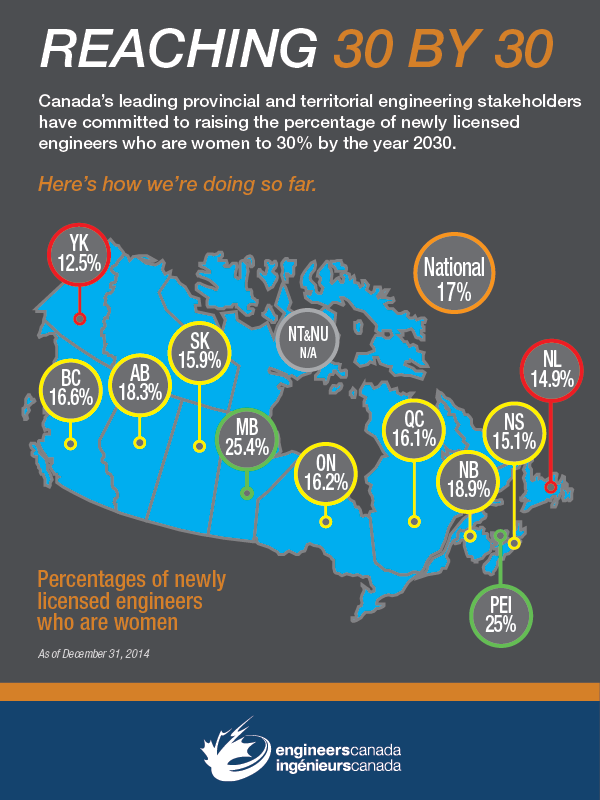
National Engineering Month
National Engineering Month 2015—with its theme of “Engineers Make a World of Difference”—saw more than 500 events take place across the country organized by hundreds of volunteers from the provincial and territorial regulators. Engineers Canada also hosted its own event on Parliament Hill, teaming up local engineering students with members of Parliament to build resilient infrastructure.
Engineers Canada ran an ad campaign in the Globe and Mail for this year’s celebration, which contributed to a 155 per cent jump in traffic to the National Engineering Month website.
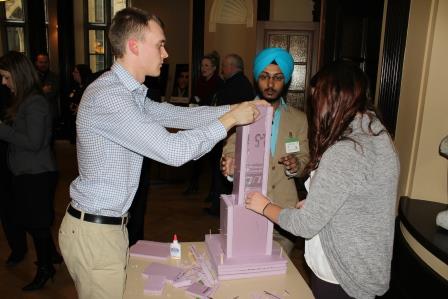
Canadian Federation of Engineering Students
Engineers Canada sponsored and participated in the Canadian Federation of Engineering Students’ (CFES) three key events: the Canadian Engineering Competition in St. John’s, NL; the CFES Congress in Winnipeg, MB; and the Canadian Conference on Diversity in Engineering in Waterloo, ON, where Sustainable Profession Committee member Lindsay Melvin participated on the Women and Gender in Engineering panel.
Affinity and insurance programs
Engineers Canada continued to grow and augment its insurance plans and financial services to enhance the professional, social and economic welfare of professional engineers:
- Engineers Canada secured a three-year rate guarantee for the Secondary Professional Liability Insurance Program that resulted in an eight per cent decrease in the rate per member.
- In collaboration with Manulife, Engineers Canada developed a Retiree Health and Dental Program to specifically cater to the next life stage with three levels of coverage to suit members’ specific needs and/or budget.
- Use of the Air Canada Corporate Agreement resulted in travel savings of approximately $20,000 for Engineers Canada.
Research
Engineers Canada produced four major research reports in 2015: Final Year Student Exit Report; National Membership Report; Enrolment and Degrees Awarded Report; and Engineering Labour Market in Canada: Projections to 2020. These identified trends and information to be used in decision-making by policy-makers.
End 4: Protection of the engineering term
To ensure the public is not misled by persons improperly using engineering terms, titles, images and words in federal corporations and trademarks, Engineers Canada administers a program to protect against misuse.
In 2015, Engineers Canada obtained either consent agreements or voluntary withdrawals of nine trademark applications filed with the Canadian Intellectual Property Office. Consent agreements are typically entered into by Engineers Canada with engineers or companies that are members of a provincial or territorial engineering regulator.
Working with the provincial and territorial regulators, Engineers Canada provided its consent to 29 requests in 2015 from engineers to register a federally-incorporated company containing “engineering” or related terms in their names.
Official marks: (plus logos)
- Engineers Canada
- Ingénieurs Canada
- Professional engineer
- Génie
- Engineer
- Ingénieur
- Engineering
- Ingénierie
- P.Eng.
- Ing.
- Consulting engineer
- Ingénieur conseil
Registered trademarks: (plus logos)
- National Engineering Week
- Semained nationale du genie
- C.C.P.E.
- C.C.I.
Active trademark applications:
- National Engineering Month
- Mois national du genie
Certification mark applications:
- FEC
- FEC (Hon.)
- FIC
- FIC (hon.)
Celebrating excellence
Awards
Engineers Canada’s annual awards honour outstanding Canadian engineers, teams of engineers, engineering projects, engineering achievements and engineering students.
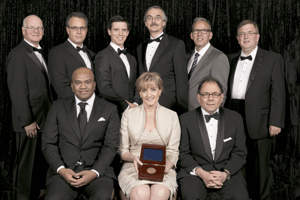
Back row, from left to right:
- Conrad LeLièvre, FEC, P.Eng. (Engineers Nova Scotia) – Meritorious Service Award for Professional Service
- Principal Engineer Chris Mealing, P.Eng., on behalf of Port Mann/Highway 1 Improvement Project Onshore Design Project – National Award for an Engineering Project or Achievement
- Connor Scheu (APEGA student member) – Gold Medal Student Award
- Tom Velan on behalf of Karel Velan, ing. (OIQ) – Gold Medal Award
- Jonathan Kay – Award of Journalism Excellence in Engineering
- Mark Bellamy, FEC, P.Eng., (APEGA) – Meritorious Service Award for Community Service
Seated, from left to right:
- Suresh Neethirajan, P.Eng. (PEO) – Young Engineer Achievement Award
- Samantha Espley, M.A.Sc., P.Eng. (PEO) – Award for the Support of Women in the Engineering Profession
- Jonathan Rose, P.Eng. (PEO) – Medal for Distinction in Engineering Education
Scholarships
Each year, Engineers Canada, in partnership with Manulife and TD Insurance Meloche Monnex, award six cash prizes totalling $60,000 to professional engineers who are returning to university.
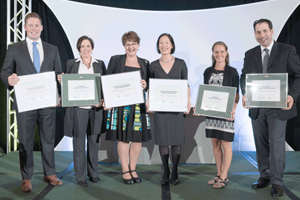
From left to right:
- Robert Sevalrud, P.Eng., MBA (APEGA), is pursuing his law degree at the University of Calgary. He intends to combine his previous studies in Geoenvironmental Engineering with his current emphasis on securities to foster technological progress and positive change in the energy industry.
- Hélène Dutrisac, P.Eng. (PEO), is pursuing a doctorate in Civil Engineering at McGill University. Her research focusing on how buildings resist earthquake ground motions is expected to permit more efficient and refined seismic design of earthquake-resistant structures.
- Katherina Tarnai-Lokhorst, FEC, P.Eng. (APEGBC), is pursuing a Doctor of Social Science degree at Royal Roads University. Her research will help increase the number of young women studying engineering and help students of both genders better understand engineering career choices.
- Stephanie Whitney, MEB, P.Eng. (PEO), is pursuing a doctorate in Social and Ecological Sustainability at the University of Waterloo. Her research in energy conservation marketing and behaviour will help reduce home energy consumption through awareness raising.
- Evelyne Monfet, ing. (OIQ), is interested in finding optimal and efficient practices to treat wastewater using microalgae. The applications of Evelyne’s research will optimize wastewater treatment while producing biogas and decrease the consumption of non-renewable fuel.
- Matthew d’Entremont, P.Eng. (Engineers Nova Scotia), is pursuing a doctorate in Electrical Biomedical Engineering at Dalhousie University, researching the use of precision ultrasound technology as a non-invasive surgical tool. His research will allow for faster surgeries, reduced recovery time and reduced patient risk.
Fellowships
Professional engineers who have given noteworthy service to the engineering profession through their work with either Engineers Canada or the provincial and territorial regulatory bodies can be nominated for an Engineers Canada fellowship.
In 2015, 130 engineers were named Fellows of Engineers Canada.
FELLOWS
APEGA
- Allen Adams, FEC, P.Eng.
- Colette Bielech, FEC, P.Eng.
- Terry Brooket, FEC, P.Eng.
- David Evans, FEC (Hon.), P.Geol.
- Ivan Fair, FEC, P.Eng.
- Leo Flaman, FEC, P.Eng.
- Frank George, FEC, P.Eng.
- Wanda Goulden, FEC, P.Eng., P.Geo.
- Melvin Hess, FEC, P.Eng.
- John Hewitt, FEC, P.Eng.
- Steve Hrudey, FEC, P.Eng.
- Barry Laviolette, FEC, P.Eng.
- bernd
- Keith McCandlish, FEC (Hon.), P.Geol.
- Sadiq Pirani, FEC, P.Eng.
- Kevin Saretsky, FEC, P.Eng.
- Jeff Simms, FEC, P.Eng.
- Terri Steeves, FEC, P.Eng.
- Bruce Thorne, FEC, P.Eng.
APEGBC
- William John Alcock, FEC, P.Eng., StructEng.
- Edward Randal Alexander, FEC, P.Eng.
- Andrew David Boettcher, FEC, P.Eng., StructEng.
- Renato Camporese, FEC, P.Eng., StructEng.
- Rick Wah Hong Cheung, FEC, P.Eng.
- David Thomas Chwaklinski, FEC, P.Eng.
- John Joseph Clague, FEC (Hon.), P.Geo.
- Norman Lyle Deverney, FEC, P.Eng.
- William Robert Donald, FEC, P.Eng.
- Glenn Allen Gibson, FEC, P.Eng.
- David William Doran John Graham, FEC, P.Eng.
- Andrew Douglas Harmsworth, FEC, P.Eng.
- Robert Nelson Heikkila, FEC, P.Eng.
- Shelley Lucille Higman, FEC, P.Eng., P.Geo.
- Murray Allen Johnson, FEC, P.Eng.
- Vijayanand Gurusiddappa Kallur, FEC, P.Eng.
- Dwayne Eugene Kalynchuk, FEC, P.Eng.
- Winnie Lai-Fong, FEC, P.Eng.
- Gilbert Larocque, FEC, P.Eng.
- Samuel Siu Chung Lau, FEC, P.Eng.
- Kok Kuen Li, FEC, P.Eng.
- Sean Bing Hsin Liaw, FEC, P.Eng.
- Magnus Charles McElroy, FEC, P.Eng.
- Paul Michael Meyer, FEC, P.Eng.
- Sally Fouad Mitry, FEC, P.Eng.
- John Edward Mobbs, FEC, P.Eng.
- Mohammad Reza Nazeman, FEC, P.Eng.
- Svetlana Nikolic-Brzev, FEC, P.Eng.
- Peter Christopher Pistner, FEC, P.Eng.
- Mark Mehrdad Roozbahani, FEC, P.Eng.
- Elroy Switlishoff, FEC, P.Eng.
- Katherina Veronica Tarnai-Lokhorst, FEC, P.Eng.
- Ronald Wallen Thring, FEC, P.Eng.
- Charman Timothy John, FEC, P.Eng.
- Emil Tomescu, FEC, P.Eng.
- Henry Court Touwslager, FEC, P.Eng.
- Horst Gerd Gustav Friedric Unger, FEC, P.Eng.
- Khashayar Vorell, FEC, P.Eng.
- Patrick Kam Wah, FEC, P.Eng.
- Margaret Caroline Wojtarowicz, FEC, P.Eng.
Engineers Geoscientists Manitoba
- Alan Michael Aftanas, FEC, P.Eng.
- John Henry Guenther, FEC, P.Eng.
- Harkaran Singh Jhinger, FEC, P.Eng.
- Thomas Kazmir Malkiewicz, FEC, P.Eng.
- Julian Petr Zdenek Nehodin-Macek, FEC, P.Eng.
- Neil David Smith, FEC, P.Eng.
- William Brett Todd, FEC, P.Eng.
- Walter Michael Turchyn, FEC, P.Eng.
APEGS
- Angeline M. Crozier, FEC, P.Eng.
- David C. Hunchak, FEC, P.Eng.
- Kate MacLachlan, FEC (Hon.), P.Geo.
- Phillip W. Winter, FEC, P.Eng.
- Tara L. Zrymiak, FEC, P.Eng.
- Engineers Yukon
- Niels Anton Jacobsen, FEC, P.Eng.
Engineers Geoscientists New Brunswick
- Kirk Mullin, FEC, P.Eng.
- Michelle Paul-Elias, FEC, P.Eng.
OIQ
- Guy Arbour, FIC, ing.
- Kathy Baig, FIC, ing.
- Normand Bell, FIC, ing.
- Souad Benali, FIC, ing.
- Marie Bernard, FIC, ing.
- Stéphane Bilodeau, FIC, ing.
- Gilles Brière, FIC, ing.
- Louis Champagne, FIC, ing.
- Raymond Cyr, FIC, ing.
- Claire Deschênes, FIC, ing.
- Reynald du Berger, FIC, ing.
- Gilles Dusseault, FIC, ing.
- Robert Fournier, FIC, ing.
- Michel Gagnon, FIC, ing.
- Marc Lalande, FIC, ing.
- Daniel Latendresse, FIC, ing.
- Yves Lavoie, FIC, ing.
- Carole Leroux, FIC, ing.
- Françoise Poliquin, FIC, ing.
- Yves Réhel, FIC, ing.
- François Rheault, FIC, ing.
- Guy Saint-Pierre, FIC, ing.
- Robert Sauvé, FIC, ing.
- Houssem Sfaxi, FIC, ing.
PEGNL
- Janet Bradshaw, FEC, P.Eng.
- Paul Nolan, FEC, P.Eng.
Engineers PEI
- Sean Wheeler, FEC, P.Eng.
PEO
- Sarah Ackert-Ferguson, FEC, P.Eng.
- Ali Afshar, FEC, P.Eng.
- Jim Bailey, FEC, P.Eng.
- David Buck, FEC, P.Eng.
- Brenda Caplan, FEC (Hon.)
- Michael Chapman, FEC, P.Eng.
- Dan Cosmin, FEC, P.Eng.
- Gordon Danson, FEC, P.Eng.
- Milorad Dimitrijevic, FEC, P.Eng.
- Sean Dunne, FEC, P.Eng.
- Reda Fayek, FEC, P.Eng.
- Joseph Gibbons, FEC, P.Eng.
- David Grant, FEC, P.Eng.
- Roger Jones, FEC, P.Eng.
- Wanda Juricic, FEC, P.Eng.
- Neil Kennedy, FEC, P.Eng.
- Robert Langlois, FEC, P.Eng.
- Chee Lee, FEC, P.Eng.
- Guomin Li, FEC, P.Eng.
- Robert Li, FEC, P.Eng.
- Volker Oettershagen, FEC, P.Eng.
- Michael O'Flaherty, FEC, P.Eng.
- Richard Pinder, FEC, P.Eng.
- Venkatasubramanian Raman, FEC, P.Eng.
- Duncan Sidey, FEC, P.Eng.
- Sydney van Geel, FEC, P.Eng.
- Thomas Woodhouse, FEC, P.Eng.
- Panchadcharam Yogeswaran, FEC, P.Eng.
- Peter Zandbergen, FEC, P.Eng.
Our people
Board of Directors
Directors

Digvir S. Jayas, FCAE, FEC, FEIC, P.Eng.
President
Engineers Geoscientists Manitoba
Vice-President (Research and International) and Distinguished Professor Biosystems Engineering, University of Manitoba
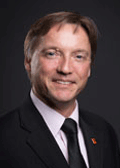
Chris D. Roney, FEC, BDS, P.Eng.
President-elect
PEO
President and Senior Structural Engineer,
Roney Engineering Ltd.
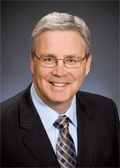
Paul Amyotte, FEC, P.Eng.
Past-president
Engineers Nova Scotia
Professor and C.D. Howe Chair in Engineering, Dalhousie University
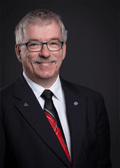
W. James Beckett, FEC, FGC (Hon), P.Eng.
APEGA
Principal, Beckett Consulting
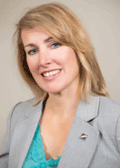
Annette Bergeron, FEC, P.Eng.
PEO
Principal, Bergeron Consulting
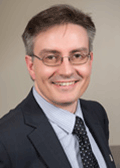
Stéphane Bilodeau, FIC, ing.
OIQ
President, Groupe Énerstat inc.
Associate professor and lecturer, Faculty of Engineering,
Université de Sherbrooke
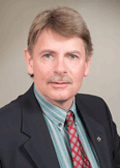
Terry Brookes, FEC, P.Eng.
NAPEG
Assistant Director Airport Facilities, Department of Transportation, Government of the Northwest Territories
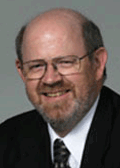
George R. Comrie, FEC, P.Eng.
PEO
Management Consultant
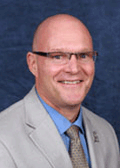
Darryl Ford, FEC, P.Eng.
APEGNB
Principal/Building Systems Director, Fundy Engineering & Consulting Ltd.
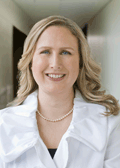
Diane L. Freeman, FEC, P.Eng.
PEO
Associate, Conestoga-Rovers & Associates
Councillor, City of Waterloo
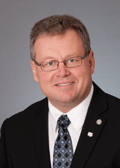
Dwayne Gelowitz, FCSCE, FEC, P.Eng.
APEGS
Principal, Water Sector Lead, Stantec Consulting Ltd.
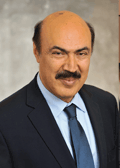
Zaki Ghavitian, M.ing., FIC, ing.
OIQ
Director, Programming and Cost Control, Engineering, Procurement and Construction Group, Hydro Québec
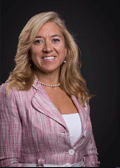
Sandra Gwozdz, FIC, ing.
OIQ
Project Engineer, Bombardier Aerospace
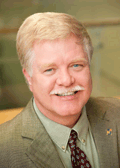
Jeff Holm, FEC, FGC (Hon), P.Eng.
APEGBC
Senior Infrastructure Manager, Allnorth Consultants Limited
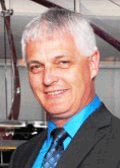
William C. Hunt, FEC, P.Eng.
PEGNL
Engineering Manager at Molson Coors Canada
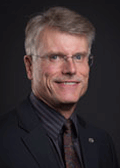
Russ Kinghorn, FEC, P.Eng.
APEGBC
Principal, Kinghorn Systems Engineering
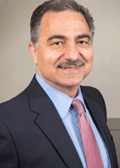
Nazmi Lawen, FEC, P.Eng.
Engineers PEI
Director of Civil Engineering, Coles Associates Ltd.
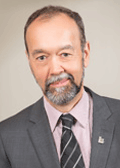
Eric Potvin, M.Sc., ing.
OIQ
Mechanical Engineering Instructor, CÉGEP de Jonquière
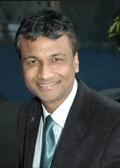
Rakesh Shreewastav, FEC, P.Eng.
PEO
Area Manager, Ministry of Transportation Ontario

Larry Staples, FEC, P.Eng.
APEGA
Board Chair (Retired), Pressure Pipe Inspection Company

Richard Trimble, FEC, P.Eng.
Engineers Yukon
Principal Consultant – Arctic Region, Engineering Practice
Advisors
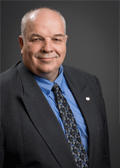
Kim Allen, MBA, FEC, FCAE, P.Eng.
Chief Executive Officer, Engineers Canada
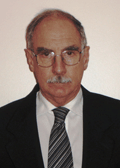
Paul Blanchard, FEC, P.Eng.
Chair, Engineers Canada Qualifications Board
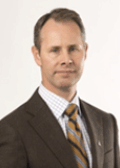
Mark W. Flint, P.Eng.
Chef de la direction, APEGA
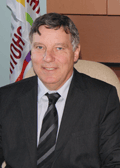
Gérard Lachiver, FIC, ing.
Président, Bureau d’agrément d’Ingénieurs Canada
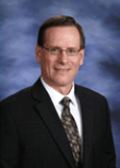
Greg Naterer, PhD, FCSME, FEIC, P.Eng.
Doyen de la faculté de génie et professeur, Université Memorial de Terre?Neuve
Staff
Current as of May 2016
- Kim Allen
- Maria Arrieta
- Olu Balogun
- Colin Brown
- Sinisa Catic
- Andrew Casale
- Marie Claverie
- Chantal Colavizza
- Christina Comeau
- Lisa Dennis
- Randa Dirani
- Shelley Ford
- Brent Gibson
- Lynn Godding
- Linda Gray
- Angela Hamill
- Johanne Lamarche
- John Langlois
- David Lapp
- Lucy Lefebvre
- Nicole Martel
- Don Mayne
- Marlene McCourt
- Ivan Ntale
- Alexander Olivas
- Martha Oram
- Melanie Ouellette
- Christina Paultre
- Stephanie Price
- Jamie Ricci
- Eric Scharf
- Lorelei Scott
- Julia Semenchenko
- Daphne Smith
- Kyle Smith
- Jeanette Southwood
- Evelyn Spence
- Beryl Strawczynski
- Kathryn Sutherland
- Joey Taylor
- Heidi Theelen
- Joachim Toelke
- Lynn Tremblay
- Dan Villeneuve
- Lynn Villeneuve
- Doris Yee
Our culture
In October 2015, Engineers Canada re-located its offices to a new location in a LEED Gold-certified building in downtown Ottawa. Among the features of the new office space are a large collaboration area, a spacious and engaging staff lounge, dedicated meeting rooms and 50 workstations, each equipped with a standing desk. This new workspace will augment the sense of collaboration and openness in the work environment, attract and retain top talent, instill corporate pride and encourage improved efficiency and productivity.

In 2015, Engineers Canada staff continued to demonstrate their deep community involvement and volunteerism:
- Our staff participated in the United Way Campaign and exceeded their $1,200 fundraising goal by raising a total of $2,782 through various challenges around the office.
- Staff participated in the Big Bike Ride for the Heart and Stroke Foundation, raising over $4,200 from Engineers Canada’s corporate donation and staff fundraising efforts.
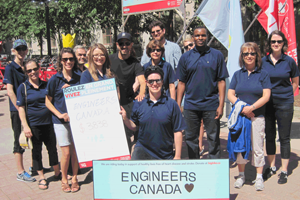
- Staff members supported Ottawa Dog Rescue by supporting UBER’s Puppy Day and allowing puppies to be brought into the Engineers Canada office.

- Engineers Canada staff voluntarily donate to the Canadian Engineering Memorial Foundation (CEMF) through a payroll deduction, and through the auctioning of gently used office items as part of the office move.
- In December, Engineers Canada made a significant donation to the Ottawa Community Immigrant Services Organization as part of its holiday charitable giving.
- Staff also organized a holiday food drive that collected more than 200 pounds of food and gifts, more than 115 individual gifts and toiletries, and nearly $300 that was donated to the Odawa Friendship Centre.
Our members
Engineers Canada is the national association of the 12 provincial and territorial engineering regulators in Canada.
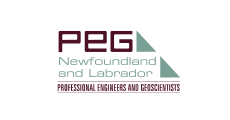
Professional Engineers and Geoscientists of Newfoundland and Labrador (PEGNL)
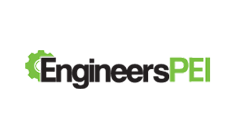
Engineers Prince Edward Island
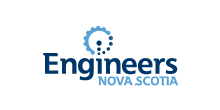
Engineers Nova Scotia
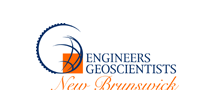
Engineers and Geoscientists New Brunswick
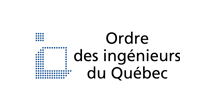
Ordre des ingénieurs du Québec (OIQ)
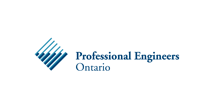
Professional Engineers Ontario (PEO)
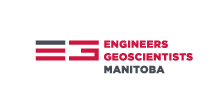
Engineers Geoscientists Manitoba
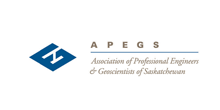
Association of Professional Engineers and Geoscientists of Saskatchewan (APEGS)
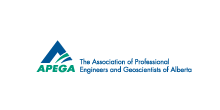
The Association of Professional Engineers and Geoscientists of Alberta (APEGA)
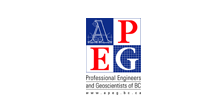
Association of Professional Engineers and Geoscientists of British Columbia (APEGBC)
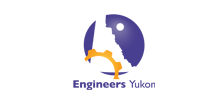
Engineers Yukon
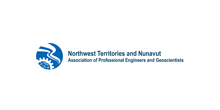
Northwest Territories Association of Professional Engineers and Geoscientists (NAPEG)
Our sponsors
Engineers Canada thanks its partners for their ongoing support and contributions to its 2015 Annual General Meeting and Awards event.
Platinum
Gold
Silver
Bronze
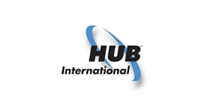
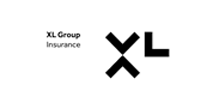
Supporter
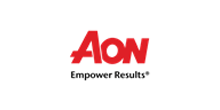
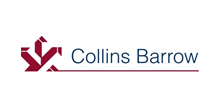
Friends



